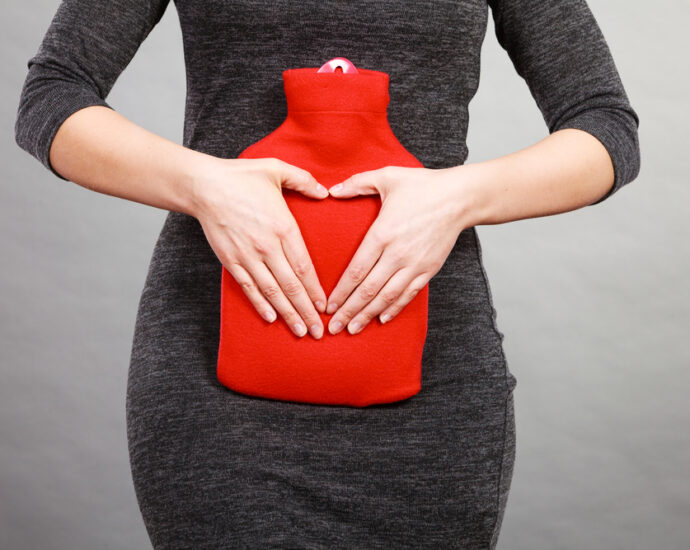Menstrual health is an essential part of overall well-being for people who menstruate, yet many experience heavy periods without fully understanding the causes or solutions. Medically known as menorrhagia, heavy periods can be disruptive, uncomfortable, and, in some cases, a sign of underlying health conditions.
This article explores what heavy periods could mean, possible causes, and practical steps to improve menstrual health for better overall wellness.
Page Contents
What Is Considered a Heavy Period?
A heavy period is more than just a few days of discomfort. It is typically defined as:
- Losing 80 mL or more of blood per cycle (the average is about 30-40 mL).
- Bleeding lasting longer than 7 days.
- Needing to change a pad or tampon every 1-2 hours due to excessive flow.
- Passing blood clots larger than a quarter.
- Experiencing severe cramping, fatigue, or dizziness.
If heavy bleeding interferes with daily activities or causes extreme fatigue, it may require medical attention to rule out potential health issues.
Possible Causes of Heavy Periods
- Hormonal Imbalance
Hormones like estrogen and progesterone regulate the menstrual cycle. An imbalance—often caused by stress, weight changes, or conditions like PCOS (Polycystic Ovary Syndrome)—can lead to excessive or prolonged bleeding.
- Estrogen dominance (too much estrogen compared to progesterone) can cause the uterine lining to thicken, leading to heavier periods when it sheds.
- Conditions like hypothyroidism can also disrupt hormone levels and impact menstrual flow.
- Uterine Fibroids or Polyps
- Fibroids are noncancerous growths in the uterus that can increase bleeding.
- Polyps are small tissue growths that may cause spotting or heavy menstrual flow.
- These conditions can develop without noticeable symptoms but are common causes of menorrhagia.
- Endometriosis or Adenomyosis
- Endometriosis occurs when tissue similar to the uterine lining grows outside the uterus, leading to painful, heavy periods.
- Adenomyosis happens when the uterine lining grows into the uterine muscle, causing severe cramps and prolonged bleeding.
Both conditions can contribute to irregular and intense menstrual cycles.
- Blood Clotting Disorders
Some people have undiagnosed bleeding disorders, such as Von Willebrand disease, which prevents blood from clotting properly. These conditions can result in excessive menstrual bleeding.
- Birth Control and Medications
- Hormonal birth control (like IUDs, pills, and implants) can sometimes increase or decrease period flow.
- Blood thinners, anti-inflammatory drugs, and certain antidepressants can also contribute to heavier periods.
- Perimenopause and Menopause
As the body transitions into menopause, hormonal fluctuations can cause irregular, heavy, or prolonged bleeding. This is common but should be monitored for unusual changes.
- Pelvic Inflammatory Disease (PID)
PID is an infection of the reproductive organs that can cause irregular, heavy periods, pelvic pain, and fever. It often results from untreated sexually transmitted infections (STIs) and requires medical treatment.
How to Improve Menstrual Health
While some causes of heavy periods require medical treatment, lifestyle changes, diet, and natural remedies can help manage menstrual health.
- Maintain a Balanced Diet
What you eat directly affects hormonal balance and blood flow. Focus on:
✔ Iron-rich foods (spinach, lentils, red meat, and fortified cereals) to prevent anemia caused by blood loss.
✔ Vitamin C (oranges, bell peppers, strawberries) to help with iron absorption.
✔ Omega-3 fatty acids (salmon, flaxseeds, walnuts) to reduce inflammation and period pain.
✔ Magnesium and B vitamins (nuts, whole grains, bananas) to regulate menstrual hormones.
- Stay Hydrated
Dehydration can worsen bloating and cramps. Drink at least 8 glasses of water per day, and consider herbal teas like ginger or chamomile to relieve menstrual discomfort.
- Exercise Regularly
While heavy periods can make exercise difficult, light activities like walking, yoga, and stretching can:
✔ Improve circulation.
✔ Reduce bloating and cramping.
✔ Help balance hormone levels over time.
- Try Herbal Remedies
Certain herbs can help regulate menstrual flow naturally:
🌿 Chasteberry (Vitex): Helps balance hormones.
🌿 Ginger: Reduces inflammation and period pain.
🌿 Turmeric: Acts as a natural anti-inflammatory.
🌿 Raspberry Leaf Tea: Strengthens the uterine muscles.
Always consult a doctor before using herbal supplements, especially if taking medication.
- Manage Stress Levels
Stress triggers hormonal imbalances, leading to heavier or irregular periods. Try:
✔ Deep breathing exercises.
✔ Meditation or mindfulness.
✔ Adequate sleep (7-9 hours per night).
- Consider Birth Control for Regulation
- Hormonal birth control can help regulate menstrual cycles and reduce heavy bleeding.
- IUDs like Mirena and birth control pills with progestin can lighten periods.
- Always discuss options with a doctor to find the best fit for your body.
- Track Your Menstrual Cycle
Use apps like Clue, Flo, or MyFlo to monitor cycle patterns, symptoms, and flow intensity. Tracking can help:
✔ Identify changes in period patterns.
✔ Detect possible underlying health concerns.
✔ Provide data for discussions with your doctor.
When to See a Doctor
While occasional heavy periods may be normal, seek medical help if you experience:
🚨 Bleeding lasting more than 7 days consistently.
🚨 Severe pain that interferes with daily activities.
🚨 Periods accompanied by extreme fatigue, dizziness, or shortness of breath (signs of anemia).
🚨 Irregular cycles or significant changes in period patterns.
🚨 Menstrual bleeding between periods or after menopause.
A doctor may recommend blood tests, ultrasounds, or hormone evaluations to diagnose any underlying conditions and provide treatment options.
Final Thoughts
Heavy periods can be frustrating, but understanding the possible causes and taking steps to improve menstrual health can make a significant difference. By maintaining a healthy diet, managing stress, staying hydrated, and tracking your cycle, you can better regulate your period and improve your overall well-being.
If heavy periods are disrupting your life, don’t hesitate to consult a healthcare professional for personalized guidance. Managing menstrual health is key to a healthier and more balanced lifestyle!
READ MORE: The Importance of Nutrition: Essential Vitamins and Supplements for Optimal Female Health
Sources:
https://www.mayoclinic.org/diseases-conditions/menorrhagia/symptoms-causes/syc-20352829
https://my.clevelandclinic.org/health/diseases/17734-menorrhagia-heavy-menstrual-bleeding
https://www.cdc.gov/female-blood-disorders/about/heavy-menstrual-bleeding.html
